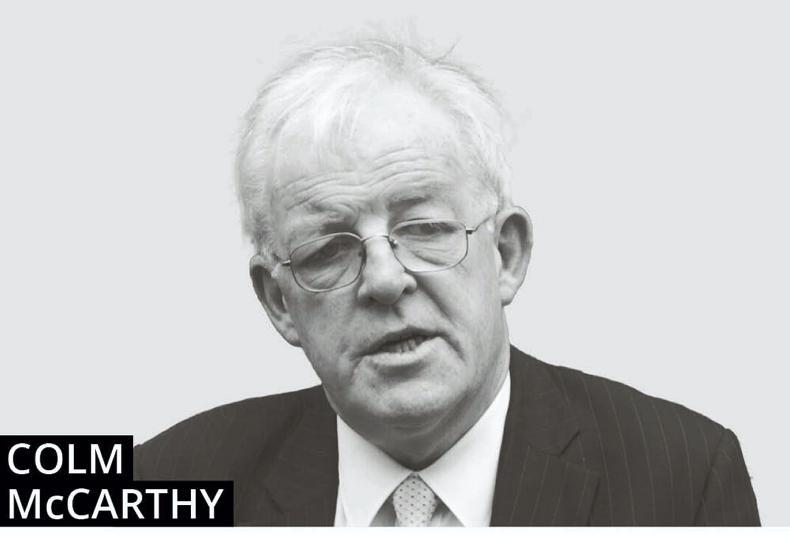Farming is exposed as never before to the decisions of governments about responsibility for emissions and for measures designed to reduce them.
The United Nations Climate Change Conference, COP 26, convenes in Glasgow on Sunday and previous editions of these climate gatherings have resulted in aspirational declarations with no great practical consequences in most countries. Emissions have proceeded apace and the modest interruption due to the COVID-19 downturn is already being reversed.
Especially for European Union members, the era of targets without policies is coming to an end. While the EU is responsible for only about 10% of worldwide emissions, climate policy has been taken more seriously in Europe than elsewhere and member states face pressure to adopt policies which will have real costs. The beneficiaries include countries which may choose not to bear any costs. Since the planet has just one atmosphere, this ‘free-rider’ problem has bedevilled climate policy for decades.
Global issue
Avoidance of a climate catastrophe for future generations cannot be secured in Europe. Unless the United States and China, which between them will soon be emitting five times the EU figure, implement effective policies, the contribution from EU countries will be marginal. The UK’s departure from the EU has not diminished British commitment to ambitious climate targets, but its share in the world total is under 1%.
The portion of worldwide emissions arising outside the critical trio, China, the USA, and Europe, is over 40% and will rise, as China’s has done, with future improvements in living standards.
What happens in India, where almost 80% of power generation comes from abundant coal supplies and where pre-pandemic power demand had been growing at 6% per annum, matters far more than anything that might be undertaken in Europe.
The EU has had some success in controlling emissions. On a per capita basis, emissions are lower than in other developed regions. In the USA for example, per capita emissions are more than double the figure for European countries at comparable living standards and it would be nice if the European Union, or the British hosts, could offer the others a better template to follow.
Flawed policies
Sadly the EU has achieved relative success despite following a flawed policy architecture. Exporting the EU’s model to the rest of the world is politically unlikely but is unpromising anyway. The sources of failure at the various COP summits can be traced to decisions taken in Europe during the 1990s, notably decisions about emission measurement, carbon pricing, and nuclear power. The region most committed to combatting climate change cannot credibly claim to be following a coherent climate policy.
On measurement, consider two consumers, Franz who lives in Munich and Aisling in Dublin. Both devote their identical incomes to just three carbon-intensive items, petrol for the car, cheese, and storage space in the cloud. For both, the emissions from the petrol are debited to Germany and Ireland respectively, which seems fair enough. The alternative, which seems silly because it is, would be to debit the country, perhaps Saudi Arabia, where oil is produced or processed. But Franz’s cheese comes from county Cork and his cat videos are stored in a data centre on Dublin’s M50 ring road. In both cases the emissions are debited to Ireland, the country of production, and not to Germany. Lucky Franz, poor Aisling.
The cheese comes from Cork because it is the low-cost location, as with oil from Saudi Arabia. It would be nuts to discourage the optimal location of production.
It is not smart either to welcome electricity-intensive export industries in the middle of a power shortage, particularly when the emissions do not travel with the exported product.
Taxation
A universal carbon tax, levied at the consumption end, was proposed by the European Commission 30 years ago and abandoned in the face of opposition from high-emission sectors. Instead, a system of tradable emission permits, handed out free to the high emitters, was chosen. It is the verdict of economists who specialise in these matters that this historic error has had enormous costs, not least an uncertain, and too low, price on carbon emissions.
During the 1980s low oil prices tempted European governments to defer the renewal of ageing nuclear plants and some got scared off by high capital costs. Europe is now realising that intermittent wind cannot deliver a reliable and resilient power system. Both gas and nuclear will have to play a role in the longer-term, as will a full phase-out of coal-fired generation around the world.
There is no agreed policy at EU level on any of these issues, not even on ending the aviation exemption from fuel excise and VAT.
At COP 26, politicians from less enthusiastic regions have little to emulate in the current European policy model.






 This is a subscriber-only article
This is a subscriber-only article










SHARING OPTIONS: